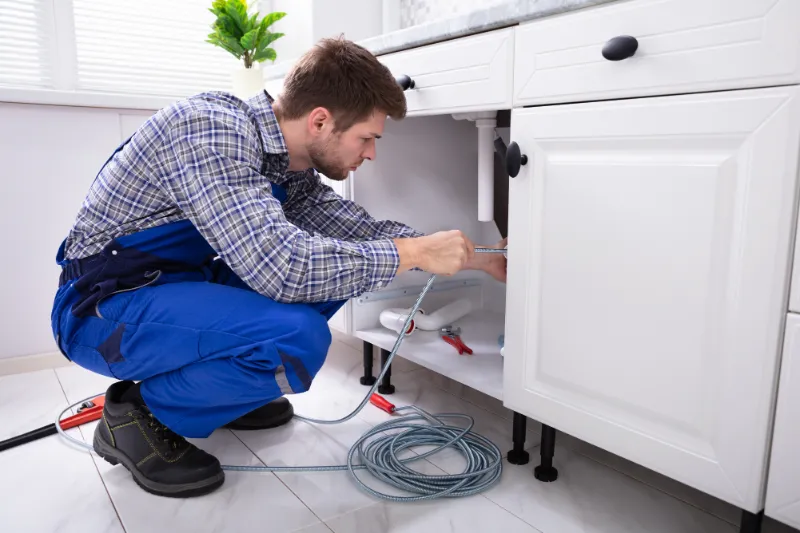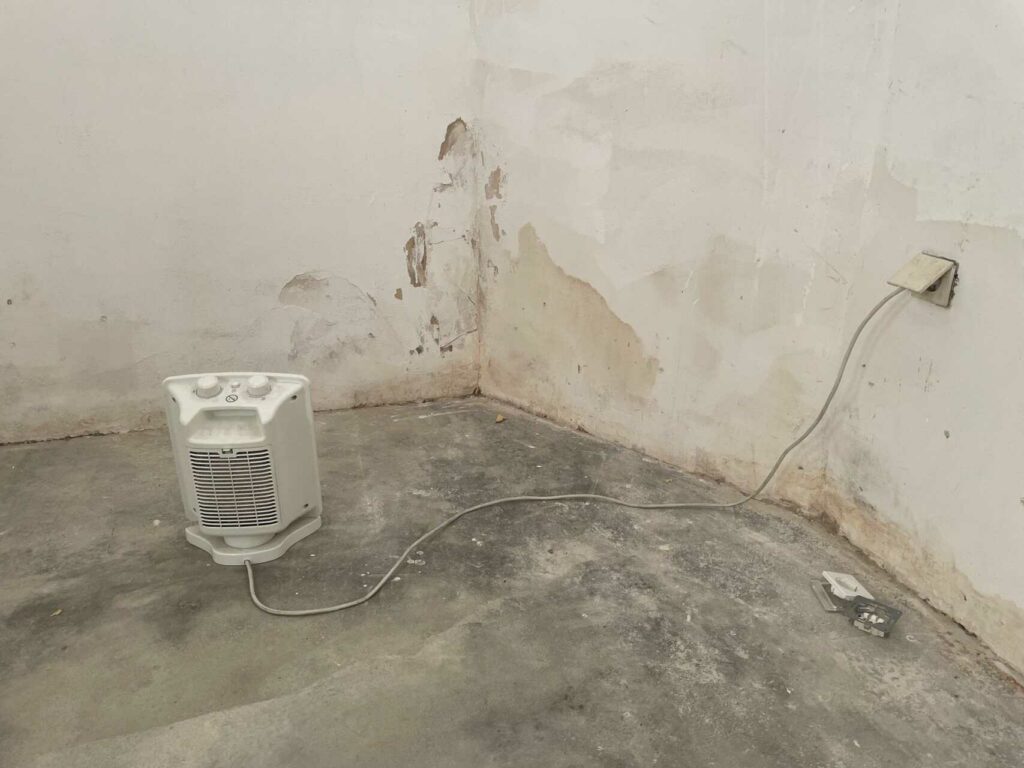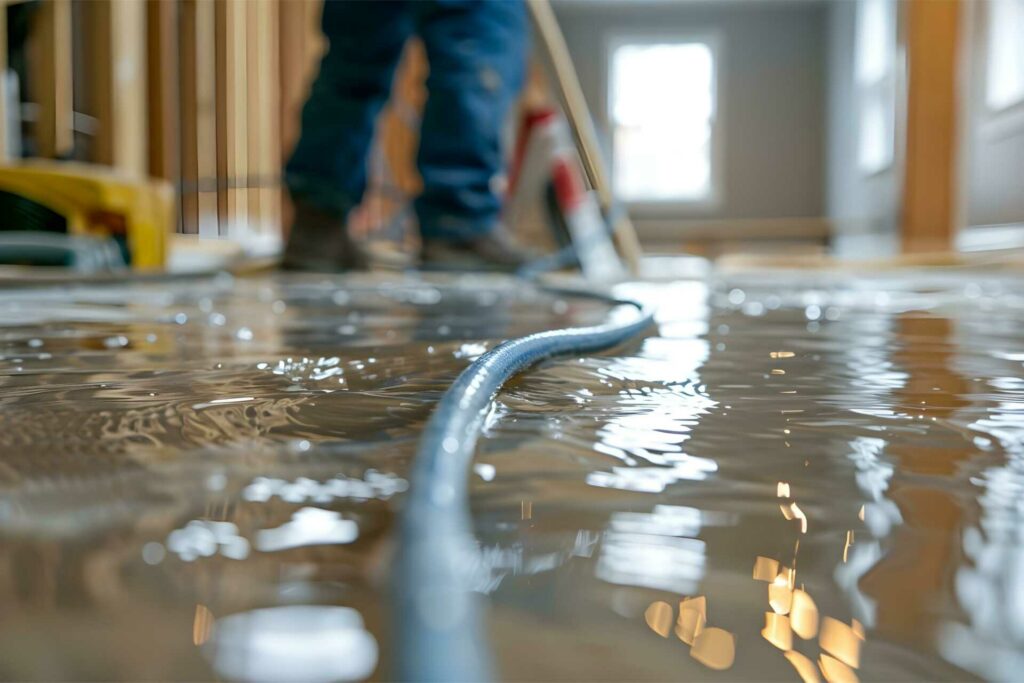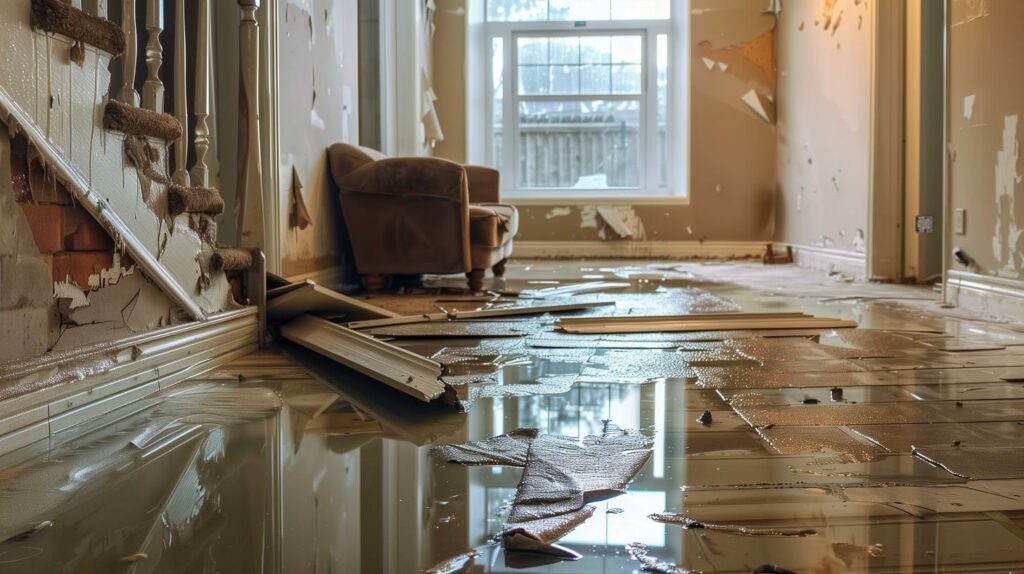Contents
Are you hearing strange noises coming from your pipes? Is the water draining slowly or getting clogged? What are the major causes of failure of pipes? Are you noticing discolored or rusty water? These could be signs that something is wrong with your pipes.
Don’t ignore persistent leaks, water damage, foul odors, or sewage backups either. It’s important to be aware of when you should be worried about your pipes.
In this article, we’ll discuss the warning signs that indicate potential problems with your plumbing.
Key Takeaways
- Unusual noises such as banging, clanging, or rattling indicate potential problems with pipes and should be addressed promptly.
- Slow drainage or clogging issues can lead to pipe bursts and water damage, and should be resolved using DIY methods or by contacting a professional plumber.
- Discolored or rusty water can indicate corrosion or mineral presence in the plumbing system, and it is important to take prompt action and avoid using the water until the issue is resolved.
- Persistent leaks or water damage can cause structural damage and mold growth, and should be addressed promptly by identifying and fixing the source of the moisture.
Unusual Noises or Sounds
If you hear any sudden or persistent banging, clanging, or rattling noises coming from your pipes, it’s time to be concerned. Unusual noises or sounds coming from your plumbing system can indicate a variety of problems that may require immediate attention. As someone who desires to serve others, it’s important to address these issues promptly to prevent further damage and inconvenience.
When you hear banging or hammering sounds, commonly known as water hammer, it’s usually caused by a sudden change in water pressure. This can occur when a valve is closed too quickly or when there’s a loose pipe that needs to be secured. Ignoring water hammer can lead to pipe damage and even leaks, so it’s essential to have it checked and repaired as soon as possible.
Clanging or rattling noises, on the other hand, may indicate loose or worn-out pipes. Over time, pipes can become loose due to vibrations or thermal expansion, leading to annoying sounds. It’s crucial to address this issue promptly to prevent further damage and potential pipe bursts.
If you notice any unusual noises coming from your pipes, it’s best to contact a professional plumber who can accurately diagnose and fix the problem. Remember, neglecting these issues can result in costly repairs and inconveniences.
Slow Drainage or Clogging Issues
When experiencing slow drainage or clogging issues in your plumbing system, it is essential to address them promptly to prevent further complications. Ignoring these problems can lead to more significant issues, such as pipe bursts, water damage, and costly repairs. To help you understand the severity of slow drainage or clogging issues, here is a table outlining common symptoms, potential causes, and recommended actions:
| Symptoms | Potential Causes | Recommended Actions |
|---|---|---|
| Water drains slowly or not at all | Accumulated debris, hair, or grease in the pipes | Use a plunger or drain snake to remove the clog. Avoid using chemical drain cleaners, as they can damage pipes. If the problem persists, call a professional plumber. |
| Foul odors coming from drains | Build-up of organic matter in the pipes | Flush drains with boiling water and vinegar mixture. If the smell persists, consider using a bacterial drain cleaner. |
| Gurgling noises when using plumbing fixtures | Air trapped in the pipes | Check for any obstructions in the vent pipes on the roof. If the problem continues, consult a plumber. |
| Multiple drains are clogged at once | Main sewer line blockage | Contact a professional plumber immediately to inspect and clear the main sewer line. |
| Water backs up into other fixtures | Main sewer line blockage or malfunctioning sewer line valve | Seek professional help to diagnose and resolve the issue. |
Discolored or Rusty Water
To continue addressing plumbing concerns, it’s important to be aware of the issue of discolored or rusty water in your pipes. When you turn on the faucet and notice that the water coming out isn’t clear or has a reddish tint, it can be cause for concern. Discolored or rusty water can indicate a problem within your plumbing system that needs to be addressed promptly.
There are several potential causes for discolored or rusty water. One possibility is that there’s corrosion occurring within your pipes. Over time, pipes can deteriorate and rust, which can lead to the discoloration of the water. Another potential cause is the presence of minerals, such as iron or manganese, in your water supply. These minerals can cause the water to appear discolored or rusty.
Regardless of the cause, it’s important to take action if you notice discolored or rusty water in your home. First, you should contact a professional plumber to assess the situation and determine the underlying cause of the issue. They’ll be able to provide expert guidance and recommend the appropriate course of action.
In the meantime, it’s advisable to avoid using the discolored or rusty water for drinking, cooking, or bathing. While the water may not be harmful, it’s best to err on the side of caution and use an alternative water source until the issue is resolved.
Persistent Leaks or Water Damage
You may experience persistent leaks or water damage in your home. When this happens, it’s important to address the issue promptly to prevent further damage and ensure the safety of your living space. Persistent leaks can lead to structural damage, mold growth, and expensive repairs if left unattended. Here are some signs that indicate you may have a persistent leak or water damage in your home.
Firstly, check for water stains on ceilings, walls, or floors. These stains can be yellowish or brownish in color and may indicate a leak from pipes behind the affected area. Additionally, look out for peeling or bubbling paint or wallpaper, as this can be a sign of water damage.
Another indication of persistent leaks is the presence of a musty odor in your home. This odor is often a result of mold growth caused by excess moisture. Mold not only damages your property but also poses a health risk to you and your family. Therefore, it’s crucial to address the source of the moisture promptly to prevent further mold growth.
Furthermore, if you notice a decrease in water pressure or a sudden increase in your water bill, it may be due to a hidden leak. These leaks can be difficult to detect, but a professional plumber can help identify and fix them.
Foul Odors or Sewage Backups
If foul odors or sewage backups are present in your home, it may indicate a serious issue with your pipes. These unpleasant smells and backups can be a sign that there’s a problem with your plumbing system that needs immediate attention.
Here are a few reasons why foul odors or sewage backups might occur and what you can do about them:
- Clogged Pipes: A buildup of debris, grease, or foreign objects in your pipes can cause blockages, leading to foul odors and sewage backups. You can try using a plunger or a drain snake to remove the clog. However, if the problem persists, it’s best to call a professional plumber who can assess the situation and provide a long-term solution.
- Damaged Sewer Line: A damaged sewer line can allow sewage to seep into your home, resulting in foul odors and backups. This can happen due to tree root intrusion, corrosion, or shifting soil. If you suspect a damaged sewer line, it’s crucial to contact a plumbing professional immediately. They can perform a thorough inspection and determine the best course of action, whether it’s repairing or replacing the sewer line.
- Ventilation Issues: Proper ventilation is essential for your plumbing system to function correctly. If there’s a problem with your vent pipes, such as blockage or damage, foul odors may linger in your home. A plumber can inspect your ventilation system and make the necessary repairs to ensure the proper flow of air and eliminate any unpleasant smells.
Conclusion
If you notice unusual noises, slow drainage, discolored water, persistent leaks, or foul odors in your pipes, it’s time to be worried. These signs could indicate underlying issues that require immediate attention.
Ignoring them could lead to further damage and costly repairs. Don’t wait until it’s too late, take action and contact a professional plumber to assess the situation and provide the necessary solutions.




